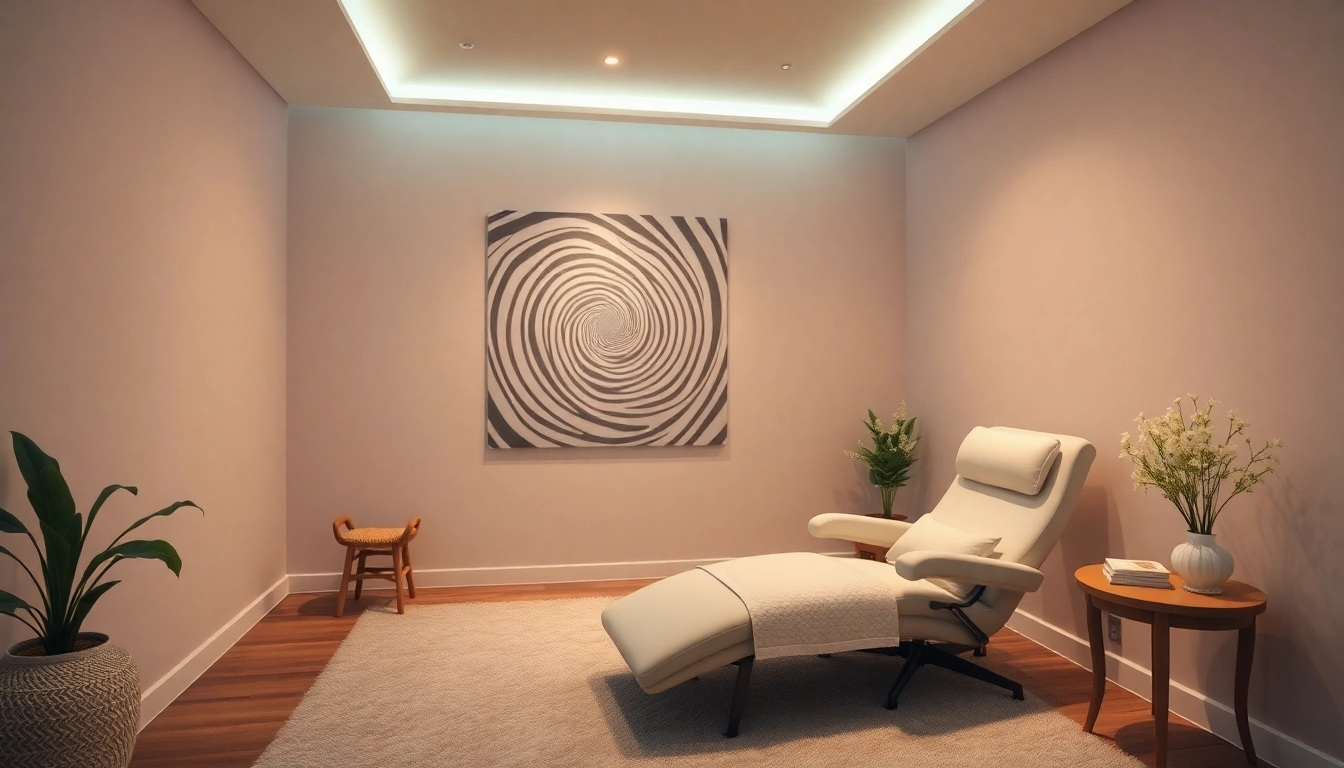Understanding Hypnotherapy for Anxiety
Anxiety disorders are among the most commonly diagnosed mental health conditions, affecting millions of individuals globally. Traditional treatments, such as therapy and medication, have proven effective, yet many are exploring alternative therapies to enhance their coping strategies. One such approach gaining traction is hypnotherapy for anxiety. This therapeutic method utilizes deep relaxation and focused attention to promote positive behavioral changes and alleviate anxiety symptoms.
What is Hypnotherapy?
Hypnotherapy is a form of complementary therapy that employs hypnosis as a therapeutic tool. The process involves inducing a trance-like state in the patient, during which they become highly focused and open to suggestion. Unlike the stereotype often portrayed in popular culture, hypnosis in therapy is not about losing control; rather, clients remain aware and can turn down any suggestions that do not resonate with them. This therapeutic modality is often used for stress relief, smoking cessation, weight loss, and, significantly, anxiety reduction.
How Hypnotherapy Works
The mechanics of hypnotherapy revolve around the brain’s ability to enter altered states of consciousness. During a session, a trained hypnotherapist guides the client into relaxation, often using verbal prompts and soothing sounds. Once in a relaxed state, the mind becomes more receptive to suggestions. This state can help clients disconnect from their anxiety, address traumatic memories, or reinforce positive thinking patterns. The goal is to alter the subconscious processes that fuel anxiety, paving the way for new coping mechanisms and a reduced stress response.
Benefits of Hypnotherapy for Anxiety
Hypnotherapy offers numerous benefits for those suffering from anxiety disorders. Some of the most prominent advantages include:
- Reduction in Anxiety Symptoms: Many clients report significant reductions in their anxiety levels following sessions.
- Improved Coping Mechanisms: Hypnotherapy equips individuals with strategies to manage their anxiety in real-time situations.
- Increased Self-Awareness: The introspective nature of hypnosis encourages better understanding of personal triggers and responses.
- Non-Invasive Treatment: As a non-invasive therapy, hypnotherapy can be an appealing alternative or complement to medications.
- Personal Empowerment: Clients often leave sessions feeling more empowered to take charge of their thoughts and feelings.
Common Anxiety Disorders Treated with Hypnotherapy
Hypnotherapy can effectively address various anxiety disorders. Understanding which specific types can benefit from this approach is essential for both patients and practitioners.
Generalized Anxiety Disorder
Generalized Anxiety Disorder (GAD) is characterized by excessive worry about everyday issues, making it difficult for sufferers to relax. Hypnotherapy can reduce the intensity of these relentless worries and help clients develop a more balanced perspective. By enhancing relaxation and promoting stress-reducing techniques, hypnotherapy offers patients a pathway to improve their daily functioning and overall well-being.
Social Anxiety Disorder
Individuals with Social Anxiety Disorder experience heightened anxiety in social situations. Hypnotherapy can help by addressing the root causes of this anxiety, often buried in past experiences. Through guided visualization exercises, clients can practice social interactions in a safe, controlled environment, gradually desensitizing them to their fears and building confidence.
Specific Phobias
Specific phobias, such as fear of flying or heights, can significantly disrupt a person’s life. Hypnotherapy encourages clients to confront the source of their fears in a safe and controlled manner. By utilizing relaxation techniques and positive affirmations, hypnotherapy aids in reducing the emotional responses associated with these phobias, enabling individuals to face their fears more comfortably.
Hypnotherapy Techniques for Anxiety Management
Various hypnotherapy techniques can be employed to manage anxiety effectively. The effectiveness of each technique may vary depending on the individual, their health history, and the specific nature of their anxiety.
Induction Methods
Induction methods are techniques used to guide clients into a state of hypnosis. These methods vary and can include progressive relaxation, guided imagery, or direct suggestion. A skilled hypnotherapist tailors the induction process based on the client’s comfort level and responsiveness, ensuring a smooth transition into the therapeutic state.
Suggestions and Visualizations
Once in a trance-like state, therapists employ suggestions and visualizations to help clients reshape their thought patterns. For instance, a hypnotherapist might suggest peaceful scenarios that promote relaxation or provide positive affirmations to counter negative thoughts. Visualization techniques encourage clients to create vivid mental images that evoke calmness and control, laying a foundation for anxiety management.
Post-Hypnotic Suggestions
Post-hypnotic suggestions are powerful tools used to reinforce the benefits of the session after it has concluded. These suggestions are designed to trigger positive behaviors and thoughts once the client returns to their fully conscious state. For example, a hypnotherapist might implant a suggestion that allows the client to feel calm and centered whenever they encounter stressful situations. This technique helps extend the benefits of hypnotherapy beyond the therapy room.
Finding a Qualified Hypnotherapist
Choosing a qualified hypnotherapist is crucial for achieving desired outcomes in treatment. Qualifications can vary, and it’s essential for clients to consider several factors when selecting a therapist.
Qualifications and Certifications
When searching for a hypnotherapist, it’s important to look for certified professionals. Credentials from recognized organizations, such as the American Society of Clinical Hypnosis (ASCH) or the National Guild of Hypnotists, ensure that the practitioner has undergone rigorous training. Verifying their qualifications helps build trust and ensures the therapist is well-versed in treatment protocols.
Interviewing Potential Hypnotherapists
Before committing to sessions, potential clients should conduct interviews with several hypnotherapists. This process allows individuals to gauge comfort levels, understand therapeutic approaches, and clarify any doubts about treatment. Key questions might include their experience with anxiety disorders, their techniques for treatment, and what the client can expect during their sessions.
What to Expect During Sessions
During initial sessions, clients can expect to discuss their anxiety experiences in detail, which helps the hypnotherapist tailor treatments to their unique needs. A typical session may begin with a conversation, followed by an induction into hypnosis. The therapist will then guide the client through various techniques aimed at relieving anxiety, before concluding with a discussion about the experience and insights gained. It’s important for clients to feel comfortable and supported throughout the process.
Integrating Hypnotherapy with Other Treatments
Hypnotherapy can be most effective when integrated with other traditional therapies. This holistic approach can address anxiety from various angles, enhancing overall treatment success.
Complementing Therapy Sessions
Many clients find that combining hypnotherapy with cognitive behavioral therapy (CBT) enhances their coping skills. While CBT focuses on restructuring thought patterns, hypnotherapy can deepen the understanding of these thoughts and emotions. This complementary approach allows clients to address both conscious and subconscious aspects of their anxiety, providing a more thorough treatment experience.
Combining with Medication
For some individuals, a combination of hypnotherapy and medication prescribed by a healthcare professional can yield the best results. Hypnotherapy may help reduce dependency on medication by teaching coping mechanisms and stress management techniques. Consulting with a healthcare provider is essential before making any changes to medication regimens.
Self-Management Techniques
Incorporating self-management techniques alongside hypnotherapy can further empower clients. Techniques like mindfulness meditation, journaling, and breathing exercises can complement the relaxation and mindset work done in hypnotherapy sessions. These practices help reinforce the skills learned during therapy and cultivate resilience against anxiety triggers.



